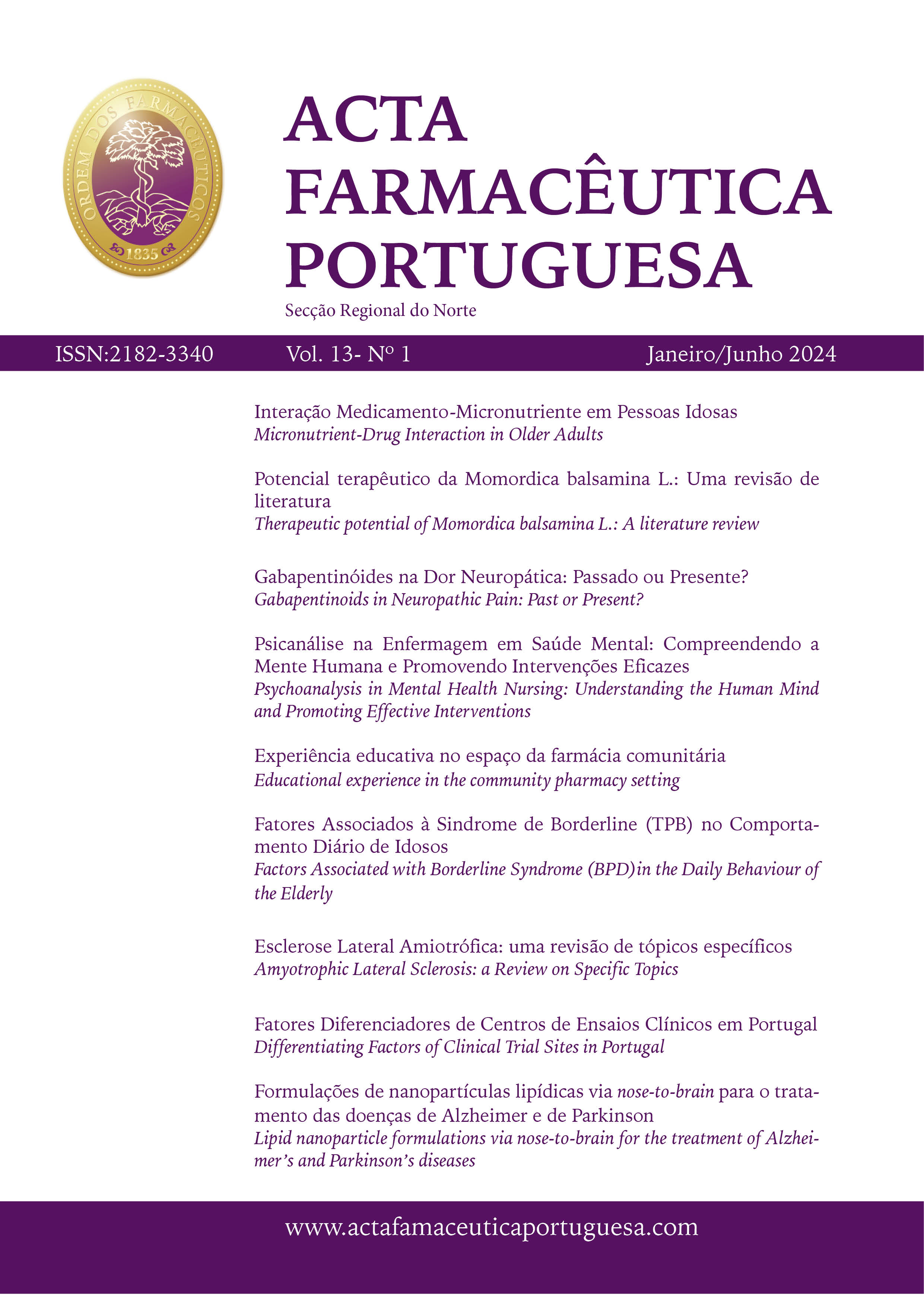Lipid nanoparticle formulations via nose-to-brain for the treatment of Alzheimer’s and Parkinson’s diseases
Abstract
Alzheimer’s and Parkinson’s diseases are currently identified as the most prevalent neurodegenerative diseases, constituting a public health problem. Pharmacological therapy for the treatment of these diseases is limited by the low bioavailability of drugs in the central nervous system. In recent years, it has been reported that intranasal administration of formulations via the direct nose-to-brain route shows pharmacokinetic and pharmacodynamic advantages that improve drug activity, since the molecules do not have to cross the blood-brain barrier to reach the brain. In this context, the development of intranasal formulations based on lipid nanoparticles, in particular solid lipid nanoparticles and nanostructured lipid carriers, is a promising alternative. The increased therapeutic potential of drugs encapsulated in these nanoparticles has already been observed in several in vivo studies, which suggests the feasibility of their use in the treatment of neurodegenerative diseases, such as Alzheimer’s and Parkinson’s disease. However, to date, no drugs based on lipid nanoparticles have been launched for the treatment of these diseases, so more research is needed, including clinical trials, to enable their application in clinical practice.
Keywords: lipid nanoparticles, parkinson disease, alzheimer´s disease, nose-to-brain.


